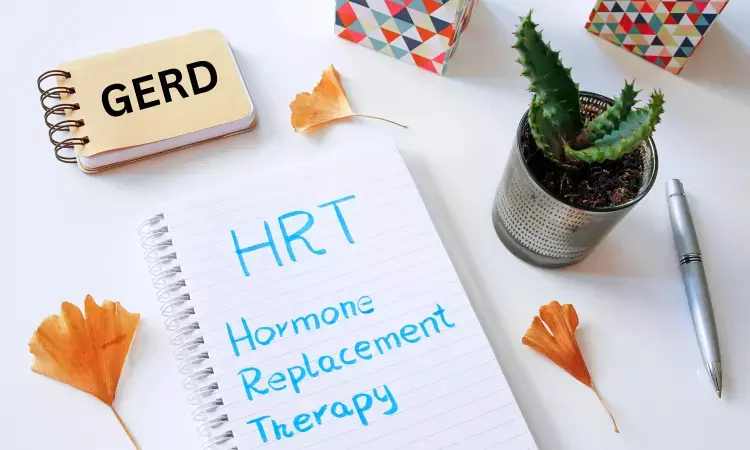- Home
- Medical news & Guidelines
- Anesthesiology
- Cardiology and CTVS
- Critical Care
- Dentistry
- Dermatology
- Diabetes and Endocrinology
- ENT
- Gastroenterology
- Medicine
- Nephrology
- Neurology
- Obstretics-Gynaecology
- Oncology
- Ophthalmology
- Orthopaedics
- Pediatrics-Neonatology
- Psychiatry
- Pulmonology
- Radiology
- Surgery
- Urology
- Laboratory Medicine
- Diet
- Nursing
- Paramedical
- Physiotherapy
- Health news
- Fact Check
- Bone Health Fact Check
- Brain Health Fact Check
- Cancer Related Fact Check
- Child Care Fact Check
- Dental and oral health fact check
- Diabetes and metabolic health fact check
- Diet and Nutrition Fact Check
- Eye and ENT Care Fact Check
- Fitness fact check
- Gut health fact check
- Heart health fact check
- Kidney health fact check
- Medical education fact check
- Men's health fact check
- Respiratory fact check
- Skin and hair care fact check
- Vaccine and Immunization fact check
- Women's health fact check
- AYUSH
- State News
- Andaman and Nicobar Islands
- Andhra Pradesh
- Arunachal Pradesh
- Assam
- Bihar
- Chandigarh
- Chattisgarh
- Dadra and Nagar Haveli
- Daman and Diu
- Delhi
- Goa
- Gujarat
- Haryana
- Himachal Pradesh
- Jammu & Kashmir
- Jharkhand
- Karnataka
- Kerala
- Ladakh
- Lakshadweep
- Madhya Pradesh
- Maharashtra
- Manipur
- Meghalaya
- Mizoram
- Nagaland
- Odisha
- Puducherry
- Punjab
- Rajasthan
- Sikkim
- Tamil Nadu
- Telangana
- Tripura
- Uttar Pradesh
- Uttrakhand
- West Bengal
- Medical Education
- Industry
Hormonal therapy associated with Gastroesophageal Reflux Disease in menopausal women

Hormone therapy (HT) is commonly used to boost hormone levels and relieve some of the symptoms of menopause. Female hormones and hormone replacement therapy (HRT) are thought to play a role in gastroesophageal reflux disease (GERD). Pregnancy, menopause, and HRT have all been reported as risk factors for GERD.
Very little is known about GERD and its the association between hormone therapy (HT) and GERD in postmenopausal women.
Researchers in the current meta analysis investigated the association between ever or current menopausal HT use and GERD using a systematic review and meta-analysis and found that there is a significant association between ever or current HT use and GERD. The results has to be considered carefully due to small number of included studies and high heterogeneity. The study is published in Menopause journal.
Researchers conducted a pooled analysis of five studies found a significant direct association between estrogen use and GERD (aOR, 1.41; 95% CI, 1.16-1.66; I2 = 97.6%), and progestogen use and GERD (two studies: aOR, 1.39; 95% CI, 1.15-1.64; I2 = 0.0%). Studies published between 2008 and August 31, 2022, were pooled using a DerSimonian and Laird random-effects model, and outcomes were reported as adjusted odds ratios (aOR) with a corresponding 95% CI.
The key findings of the study are
• The use of combined HT was also associated with GERD (1.16; 95% CI, 1.00-1.33; I2 = 87.9%). Overall, HT use was associated with 29% higher odds for GERD (aOR, 1.29; 95% CI, 1.17-1.42; I2 = 94.8%).
• The large number of pooled participants, differences in study design, geography, patient characteristics, and outcome assessment resulted in significant high heterogeneity.
The researchers concluded that “There is a significant association between ever or current HT use and GERD. However, the results should be interpreted with caution, given the small number of included studies and high heterogeneity. This warrants careful evaluation of GERD risk factors when prescribing HT to reduce the risk of potential GERD complications.”
Reference: Aldhaleei, Wafa A. MBBCh, MSc, MPH1; Bhagavathula, Akshaya S. PharmD, PhD2; Wallace, Michael B. MD, MPH3,4,5; DeVault, Kenneth R. MD3; Faubion, Stephanie S. MD, MBA, NCMP6,7. The association between menopausal hormone therapy and gastroesophageal reflux disease: a systematic review and meta-analysis. Menopause ():10.1097/GME.0000000000002214, June 27, 2023. | DOI: 10.1097/GME.0000000000002214.
MSc. Neuroscience
Niveditha Subramani a MSc. Neuroscience (Faculty of Medicine) graduate from University of Madras, Chennai. Ambitious in Neuro research having worked in motor diseases and neuron apoptosis is interested in more of new upcoming research and their advancement in field of medicine. She has an engrossed skill towards writing and her roles at Medical dialogue include Sr. Content writer. Her news covers new discoveries and updates in field of medicine. She can be reached at editorial@medicaldialogues.in
Dr Kamal Kant Kohli-MBBS, DTCD- a chest specialist with more than 30 years of practice and a flair for writing clinical articles, Dr Kamal Kant Kohli joined Medical Dialogues as a Chief Editor of Medical News. Besides writing articles, as an editor, he proofreads and verifies all the medical content published on Medical Dialogues including those coming from journals, studies,medical conferences,guidelines etc. Email: drkohli@medicaldialogues.in. Contact no. 011-43720751


